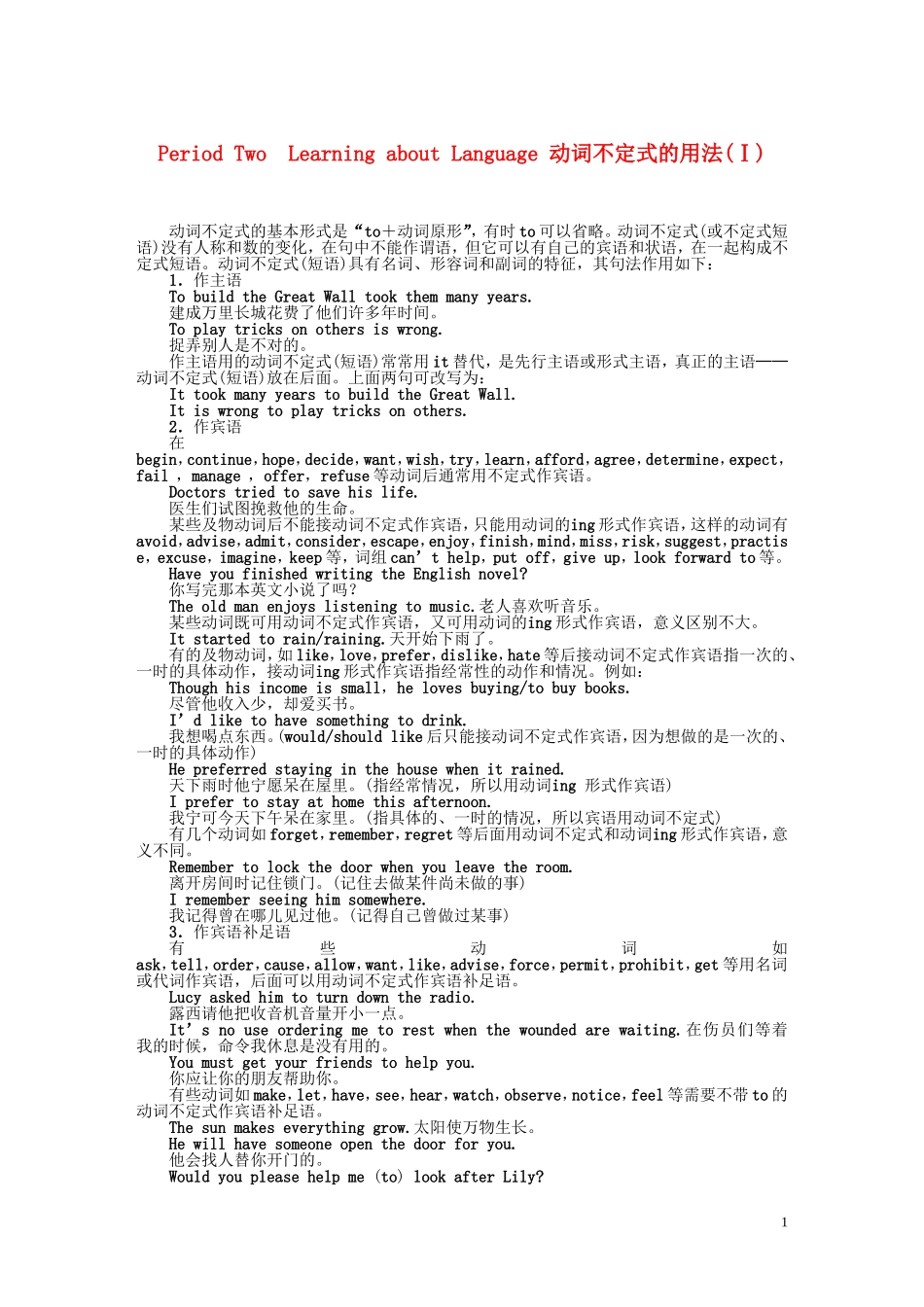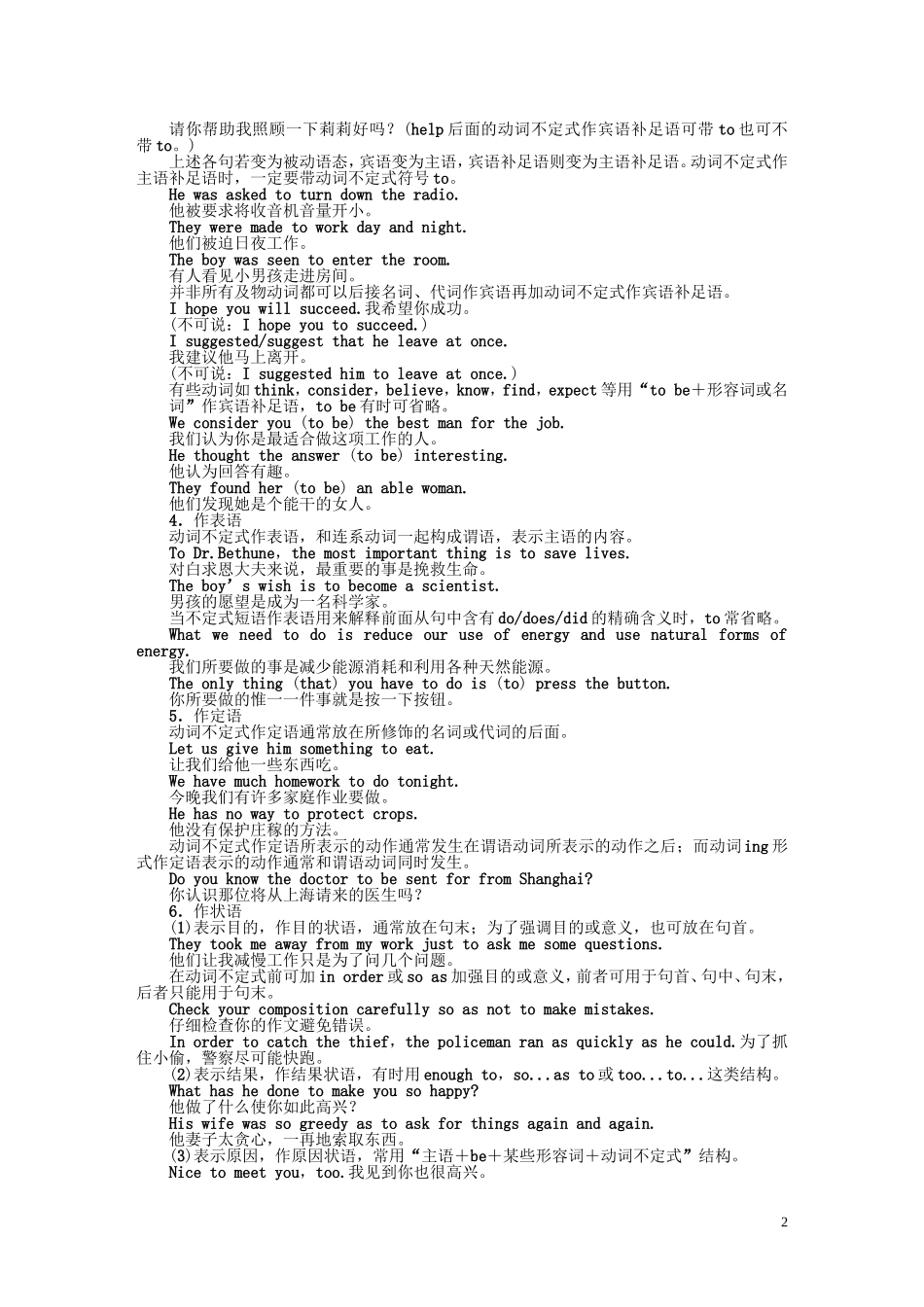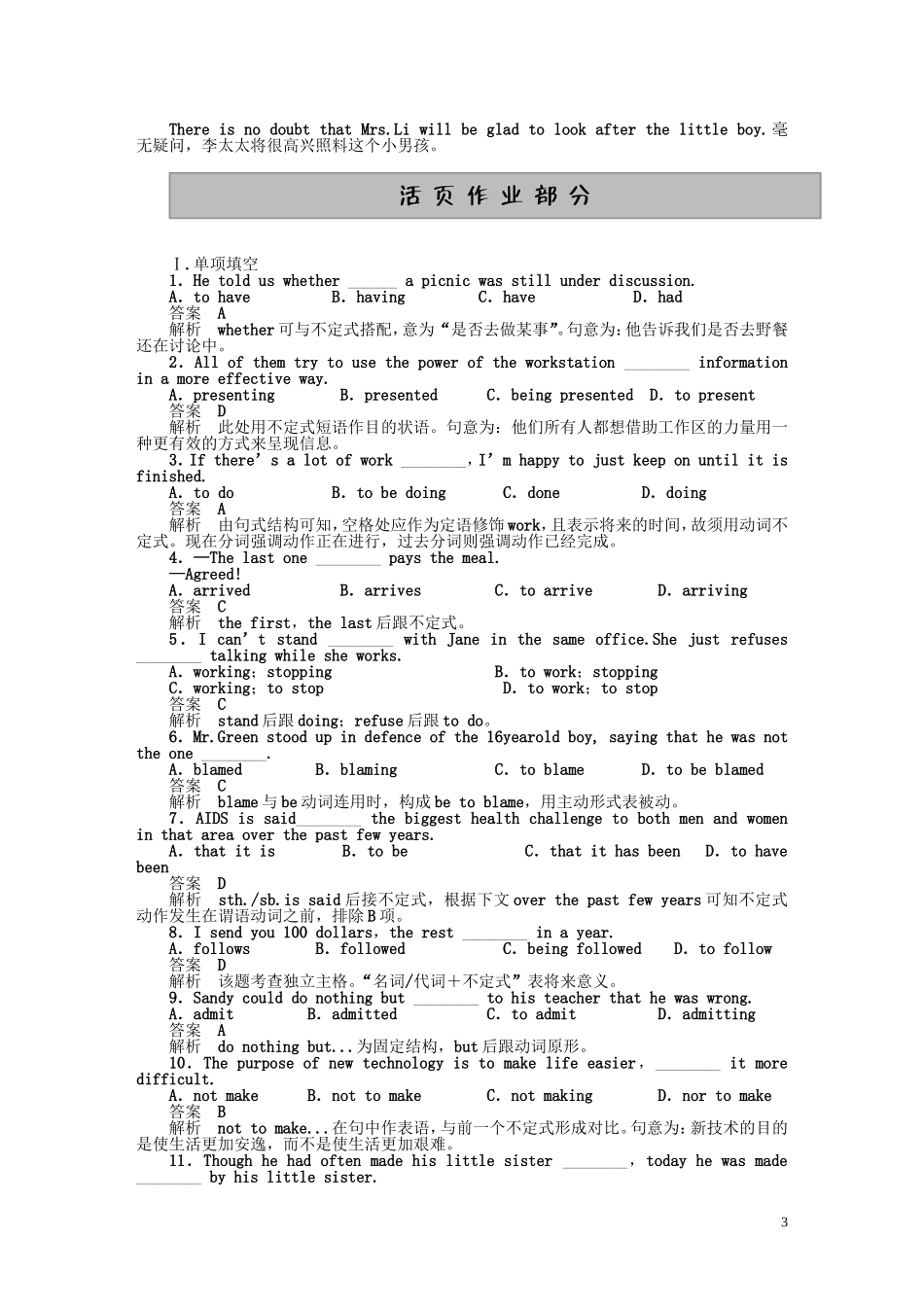Period Two Learning about Language 动词不定式的用法(Ⅰ)动词不定式的基本形式是“to+动词原形”,有时 to 可以省略。动词不定式(或不定式短语)没有人称和数的变化,在句中不能作谓语,但它可以有自己的宾语和状语,在一起构成不定式短语。动词不定式(短语)具有名词、形容词和副词的特征,其句法作用如下:1.作主语To build the Great Wall took them many years.建成万里长城花费了他们许多年时间。To play tricks on others is wrong.捉弄别人是不对的。作主语用的动词不定式(短语)常常用 it 替代,是先行主语或形式主语,真正的主语——动词不定式(短语)放在后面。上面两句可改写为:It took many years to build the Great Wall.It is wrong to play tricks on others.2.作宾语在begin,continue,hope,decide,want,wish,try,learn,afford,agree,determine,expect,fail ,manage ,offer,refuse 等动词后通常用不定式作宾语。Doctors tried to save his life.医生们试图挽救他的生命。某些及物动词后不能接动词不定式作宾语,只能用动词的ing 形式作宾语,这样的动词有avoid,advise,admit,consider,escape,enjoy,finish,mind,miss,risk,suggest,practise,excuse,imagine,keep 等,词组 can’t help,put off,give up,look forward to 等。Have you finished writing the English novel?你写完那本英文小说了吗?The old man enjoys listening to music.老人喜欢听音乐。某些动词既可用动词不定式作宾语,又可用动词的ing 形式作宾语,意义区别不大。It started to rain/raining.天开始下雨了。有的及物动词,如 like,love,prefer,dislike,hate 等后接动词不定式作宾语指一次的、一时的具体动作,接动词ing 形式作宾语指经常性的动作和情况。例如:Though his income is small,he loves buying/to buy books.尽管他收入少,却爱买书。I’d like to have something to drink.我想喝点东西。(would/should like 后只能接动词不定式作宾语,因为想做的是一次的、一时的具体动作)He preferred staying in the house when it rained.天下雨时他宁愿呆在屋里。(指经常情况,所以用动词ing 形式作宾语)I prefer to stay at home this afternoon.我宁可今天下午呆在家里。(指具体的、一时的情况,所...


